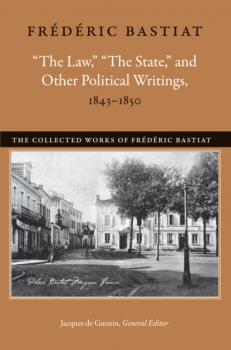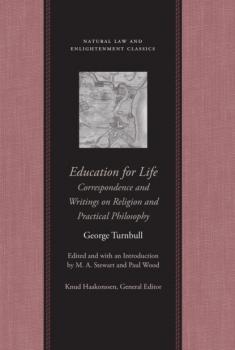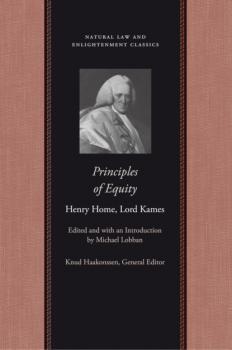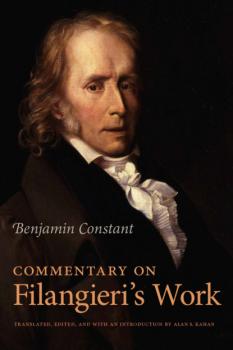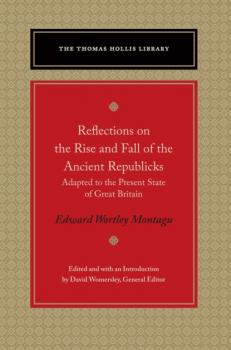ТОП просматриваемых книг сайта:
Ingram
Все книги издательства IngramАннотация
Social Contract, Free Ride is a cogent argument that strikes at the very foundations of traditional economic apologies for coercive action by the state to fulfill necessary public utility.Anthony de Jasay is an independent theorist living in France. Please note: This title is available as an ebook for purchase on Amazon, Barnes and Noble, and iTunes.
Аннотация
This edition brings back into print, after two and a half centuries, the pioneering work of English republicanism, Marchamont Nedham’s The Excellencie of a Free-State, which was written in the wake of the execution of King Charles I.First published in 1656, and compiled from previously written editorials in the parliamentarian newsbook Mercurius Politicus, The Excellencie of a Free-State addressed a dilemma in English politics, namely, what kind of government should the Commonwealth adopt?David Womersley is Thomas Warton Professor of English Literature at the University of Oxford. His most recent book is Divinity and State.Marchamont Nedham (1620–1678) was a polemicist, pamphleteer, and editor of Mercurius Politicus.Blair Worden is Emeritus Fellow of St. Edmund Hall, Oxford. Please note: This title is available as an ebook for purchase on Amazon, Barnes and Noble, and iTunes.
“The Law,” “The State,” and Other Political Writings, 1843–1850 - Bastiat Frédéric
The Collected Works of Frederic BastiatАннотация
“The Law,” “The State,” and Other Political Writings, 1843–1850, collects nineteen of Bastiat’s “pamphlets,” or articles, ranging from the theory of value and rent, public choice and collective action, government intervention and regulation, the balance of trade, education, and trade unions to price controls, capital and growth, and taxation. Many of these are topics still relevant and debated today.In addition, this edition also contains footnotes and glossary entries that help explain the political, economic, and intellectual context in which Bastiat lived and worked. Filling gaps on Bastiat and his philosophy, this volume features articles that have never before been translated in English.Frédéric Bastiat (1801–1850) was one of the leading advocates of free markets and free trade in the mid-nineteenth century.Pascal Salin is Emeritus Professor of Economics, Paris University, and former president of the Mont Pelerin Society. He is the author of Libéralisme; Français, n’ayez pas peur du libéralism; and Revenir au capitalisme, pour éviter les crises.Jacques de Guenin is founder of the Cercle Frédéric Bastiat. He is a graduate of the École des Mines in Paris and holds a Master of Sciences from the University of California, Berkeley.Dennis O’Keeffe is Professor of Social Science at the University of Buckingham, Buckingham, England, and is Senior Research Fellow in Education at the Institute of Economic Affairs, London.David M. Hart has a Ph.D. in history from King’s College, CambriEAe, and is the Director of Liberty Fund’s Online Library of Liberty. Please note: This title is available as an ebook for purchase on Amazon, Barnes and Noble, and iTunes.
Аннотация
George Turnbull belongs with a group of early Scottish Enlightenment thinkers, including Francis Hutcheson, who found their native Calvinism too repressive. They sought to relocate religion within a context of reason and science and to establish a tolerant and humane ethic upon values rooted in classical ideals.In a distinctive voice, Turnbull presented natural-law theory “scientifically,” harnessed the arts to promote moral and civil virtue, and extolled reason as the foundation of liberty. The works in this volume exhibit the close interrelations between these concerns and show him as a paradigmatic “Enlightenment” figure. This extremely rare material includes two Aberdeen graduation theses, three tracts on religion, various writings on education and art, and, for the first time in print, the correspondence of Turnbull.George Turnbull (1698–1748) was born in Scotland and ordained into the Church of England in 1739. A key figure in the Scottish Enlightenment, he taught moral philosophy at Marischal College, Aberdeen, where one of his pupils was Thomas Reid, who became the main representative of the Scottish Common Sense philosophy.M. A. Stewart is Honorary Research Professor in the History of Philosophy at the Universities of Lancaster and Aberdeen.Paul Wood is Professor of History at the University of Victoria.Please note: This title is available as an ebook for purchase on Amazon, Barnes and Noble, and iTunes.
Аннотация
The writings of James Otis arguably had more influence in America and England before 1774 than those of any other American except John Dickinson. John Adams pointed to Otis as the first man to have plumbed the depths of the argument between Britain and the Anglo-American colonies. Anyone who wishes to understand the American Revolution, the American founding, and American political thought would benefit greatly from reading Otis's political writings. Otis's writings tackle enduring themes of American politics: the rule of law, individual rights, and federalism. Otis saw that the problem facing the Anglo-American colonists was the difficulty of reconciling their rights as British subjects, and as men, with continued participation in the British Empire. His proposed solution, a federally structred empire, with a proportionate number of Anglo-American representative in the Parliament in London and the continued presence of Anglo-American governments, was unacceptable to almost everyone else at the time.
Аннотация
Henry Home, Lord Kames, was the complete “Enlightenment man,” concerned with the full spectrum of human knowleEAe and its social use. However, as a lawyer and, after 1752, as a juEAe on the Court of Session in Edinburgh, he made many of his most distinctive contributions through his works on the nature of law and legal development.Principles of Equity, first published in 1760, is considered his most lasting contribution to jurisprudence and is still cited. In his jurisprudence, Kames specifically sought to explain the distinction between the nature of equity and common law and to address related questions, such as whether equity should be bound by rules and whether there should be separate courts of law and equity.Beginning with a general introduction on the rise and nature of equity, Principles of Equity is divided into three books. The first two, “theoretical,” books examine the powers of a court of equity as derived from justice and from utility, the two great principles Kames felt governed equity. The third book aims to be more practical, showing the application of these powers to several subjects, such as bankrupts. Kames drew his illustrations of the principles of equity from the case law of the Court of Session as well as the English Chancery, both because he felt that the rules of equity must be the same in every country where law was cultivated, and because he hoped his work might promote a closer union between the law of the two kingdoms. Principles of Equityis significant as an example of the approach of an Enlightenment thinker to practical legal questions and as an early attempt to reduce law to principles. Kames himself saw this as his most important work, and scholars both of his theory and of the broader Scottish Enlightenment will find it gives essential insights into the thought of this central figure. There is evidence that this book was well known in the formative years of the United States and that both Benjamin Franklin and Thomas Jefferson were familiar with Kames’s treatise.Henry Home, Lord Kames (1696–1762) was one of the leaders of the Scottish Enlightenment.Michael Lobban is Professor of Legal History at Queen Mary, University of London. Please note: This title is available as an ebook for purchase on Amazon, Barnes and Noble, and iTunes.
Аннотация
Commentary on Filangieri’s Work addresses the principal political and social questions that Benjamin Constant, one of the most important liberal thinkers of the nineteenth century, ever discussed. This translation will help give the work its deserved importance in political theory.Commentary is founded on the view that government should maintain a strictly limited role in society; “The functions of government are purely negative. It should repress disorder, eliminate obstacles, in a word, prevent evil from arising. Thereafter one can leave it to individuals to find the good.”Benjamin Constant (1767–1830), born in Switzerland, became one of France’s leading writers, as well as a journalist, philosopher, and politician.Alan S. Kahan is Professor of British Civilization at the Université de Versailles/St. Quentin-en-Yvelines in France.Please note: This title is available as an ebook for purchase on Amazon, Barnes and Noble, and iTunes.
Reflections on the Rise and Fall of the Ancient Republicks - Edward Wortley Montagu
Thomas Hollis LibraryАннотация
In 1759, at the height of the Seven Years’ War, when Great Britain was suffering a series of military reversals, Montagu considered his country’s plight in an historical context formed by the study of five ancient republics: Sparta, Athens, Thebes, Carthage, and Rome. Montagu’s focus on the ancient republics gives his contribution a distinctive twist to the chorus of voices lamenting Britain’s decline, and his analysis exerted influence in three momentous eighteenth-century crises: the Seven Years’ War, the American War of Independence, and the French Revolution. This is the first modern edition of Montagu’s work.Edward Wortley Montagu (1713 –1776) was the son of a wealthy British Ambassador to the Ottoman Empire and of Lady Mary Wortley Montagu. He was a student of oriental languages at the University of Leiden, which apparently proved useful during the peace negotiations at Aix-la-Chapelle which concluded the War of the Austrian Succession in 1748.David Womersley is the Thomas Warton Professor of English Literature at the University of Oxford. He has published widely on English literature from the early sixteenth to the early nineteenth centuries. He is the editor of Jonathan Swift’s Gulliver’s Travels (2012) for CambriEAe University Press.Please note: This title is available as an ebook for purchase on Amazon, Barnes and Noble, and iTunes.
Аннотация
Francisco Suárez (1548–1617) was the greatest metaphysician and moral theorist of sixteenth- and seventeenth-century scholasticism. Suárez is of particular importance as a theorist of natural law and of rights, for his work combines expertise in moral theory with a mastery of civil and ecclesiastical jurisprudence and a sophisticated theory of the human person.The bulk of the selections in this volume are from A Treatise on Laws and God the Lawgiver (1612), “one of the major works of scholastic moral and legal theory,” writes volume editor Thomas Pink. In the Treatise, working within the framework originally elaborated by Thomas Aquinas, Suárez presented a systematic account of human moral activity in all its dimensions, synthesizing the entire scholastic heritage of thinking on this topic and identifying the key issues of debate and the key authors who had formulated the different positions most incisively. Then he went beyond this heritage of authorities to present a new account of human moral action and its relationship to the law.The second selection is from A Defence of the Catholic and Apostolic Faith (1613), a treatise on the errors of Anglicanism and, in particular, on the errors of King James I in relation to the power of the king in temporal matters and the power of the pope to intervene in the cause of religion. The selections in the final section, A Work on the Three Theological Virtues (1621), are taken from Suárez’s accounts of faith and love, and they concern the conversion of unbelievers and the conditions of a just war.The translations in this volume were originally published by the Carnegie Endowment for International Peace. Now republished with a new introduction, revisions to some of the existing notes, and additional notes, these selections are again available in English for those interested in the ethical and metaphysical foundations of political authority and the right to liberty. The texts are of special interest to historians of religious liberty, toleration, and coercion as a classic account of the coercive authority in matters of faith and religious practice of the Catholic church.Thomas Pink is Professor of Philosophy at King’s College London. Some of his publications include Free Will: A Very Short Introduction and The Will and Human Action: From Antiquity to the Present Day.Please note: This title is available as an ebook for purchase on Amazon, Barnes and Noble, and iTunes.
Аннотация
Tocqueville’s Voyages is a collection of newly written essays by some of the most well-known Tocquevillian scholars today. The essays in the first part of the volume explore the development of Tocqueville’s thought, his intellectual voyage, during his trip to America and while writing Democracy in America. The second part of the book focuses on the dissemination of Tocqueville’s ideas beyond the Franco-American context of 1835–1840 in places such as Argentina, Japan, and Eastern Europe.The articles and contributors are as follows:Part 1: Tocqueville as VoyagerHidden from View: Tocqueville’s Secrets Eduardo NollaTocqueville’s Voyages: To and From America? S. J. D. GreenDemocratic Dangers, Democratic Remedies, and the Democratic Character James T. SchleiferTocqueville’s Journey into America Jeremy JenningsAlexis de Tocqueville and the Two-Founding Thesis James W. CeaserTocqueville’s “New Political Science” Catherine H. ZuckertDemocratic Grandeur: How Tocqueville Constructed His New Moral Science in America Alan S. KahanIntimations of Philosophy in Tocqueville’s “Democracy in America” Harvey C. MansfieldAn Undertow of Race Prejudice in the Current of Democratic Transformation: Tocqueville on the “Three Races” of North America Barbara AllenTocqueville’s Reflections on a Democratic Paradox Jean-Louis BenoîtOut of Africa: Tocqueville’s Imperial Voyages Cheryl B. WelchPart 2: Tocquevillian VoyagesTocqueville’s Voyage of Discovery from Sicily to America Filippo SabettiTocqueville, Argentina, and the Search for a Point of Departure Enrique AguilarTocqueville and Eastern Europe Aurelian CraiutuTocqueville and “Democracy in Japan” Reiji MatsumotoThis book gives readers unprecedented access to the development of Tocqueville’s thought as seen through the eyes of some of today’s most preeminent Tocquevillian scholars. Not only do the essays shed fresh light on the ideas in Democracy in America, but they also invite readers to reassess previous interpretations of Tocqueville’s great work and to consider its continued relevance to the world today.Christine Dunn Henderson is a Senior Fellow at Liberty Fund.Please note: This title is available as an ebook for purchase on Amazon, Barnes and Noble, and iTunes.



